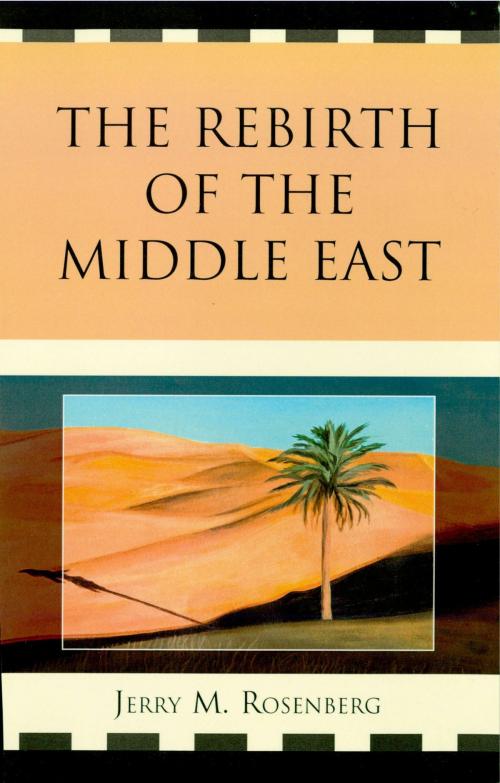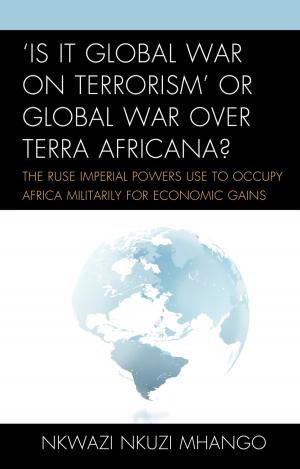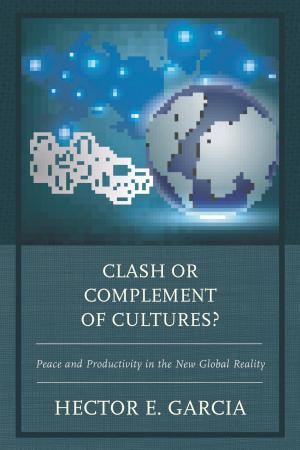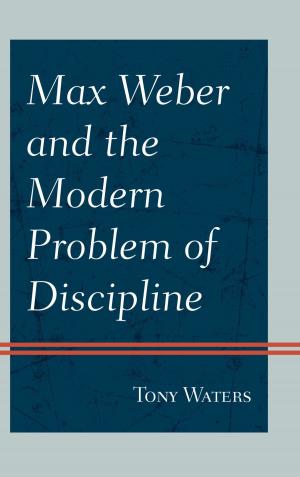The Rebirth of the Middle East
Nonfiction, Social & Cultural Studies, Political Science, Government, Public Policy, International, International Relations, History, World History| Author: | Jerry M. Rosenberg | ISBN: | 9780761848462 |
| Publisher: | Hamilton Books | Publication: | September 28, 2009 |
| Imprint: | Hamilton Books | Language: | English |
| Author: | Jerry M. Rosenberg |
| ISBN: | 9780761848462 |
| Publisher: | Hamilton Books |
| Publication: | September 28, 2009 |
| Imprint: | Hamilton Books |
| Language: | English |
In *The Rebirth of the Middle East,*Rosenberg discusses how peace, stability, and prosperity are dependent upon economic and trade relations between Israel and Palestine, as well as other neighboring Arab and Muslim countries. The world is poised to participate in this healing process with funding and training and lacks only the needed conditions to proceed. Rosenberg asserts that this process of stabilization can benefit from a reinvented Marshall Plan, modeled on the 1948 U.S. humanitarian European Recovery Program. In the long run, success will be measured by the creation of a Middle East Economic Community.
As you point out, there is an opportunity to define the future of the Middle East in terms of reconciliation and coexistence rather than confrontation and violence. There are no limits to what can be done if the region's energy and talents can be channeled into creating new opportunities and building a land as bountiful and peaceful as it is holy.
—Bill Clinton, former President of the United States
Praise for Jerry Rosenberg's Nation-Building: A Middle East Recovery Program:
To Jerry M. Rosenberg- With much respect for his attempt to organize a great dream. I believe you have addressed yourself to the very foundations which will lie at the heart of the future of the region and I hope indeed that the day is not far off when the plan will be brought to realization.
—Shimon Peres, former Prime Minster of Israel
[Nation-Building provides] insights into the interplay of underlying variables, encompassing significant regional, global, religious, secular, socio-political, and historical factors, of the permeability of the Middle East.
—el-Sayed el-Aswad, Ph.D., The University of Bahrain, Digest of Middle East Studies
I hope, by drawing on the Marshall Plan, you are able to formulate a blueprint that can succeed in the Middle East. I further hope that you are able to use the Marshall Plan to illustrate to others how such plans have been successful in the past, and how, despite the daunting odds, such a plan could create economic growth, democracy, and peace in our region. I wish you much success in your important work.
—Natan Sharansky, former Deputy Prime Minister of Israel
In *The Rebirth of the Middle East,*Rosenberg discusses how peace, stability, and prosperity are dependent upon economic and trade relations between Israel and Palestine, as well as other neighboring Arab and Muslim countries. The world is poised to participate in this healing process with funding and training and lacks only the needed conditions to proceed. Rosenberg asserts that this process of stabilization can benefit from a reinvented Marshall Plan, modeled on the 1948 U.S. humanitarian European Recovery Program. In the long run, success will be measured by the creation of a Middle East Economic Community.
As you point out, there is an opportunity to define the future of the Middle East in terms of reconciliation and coexistence rather than confrontation and violence. There are no limits to what can be done if the region's energy and talents can be channeled into creating new opportunities and building a land as bountiful and peaceful as it is holy.
—Bill Clinton, former President of the United States
Praise for Jerry Rosenberg's Nation-Building: A Middle East Recovery Program:
To Jerry M. Rosenberg- With much respect for his attempt to organize a great dream. I believe you have addressed yourself to the very foundations which will lie at the heart of the future of the region and I hope indeed that the day is not far off when the plan will be brought to realization.
—Shimon Peres, former Prime Minster of Israel
[Nation-Building provides] insights into the interplay of underlying variables, encompassing significant regional, global, religious, secular, socio-political, and historical factors, of the permeability of the Middle East.
—el-Sayed el-Aswad, Ph.D., The University of Bahrain, Digest of Middle East Studies
I hope, by drawing on the Marshall Plan, you are able to formulate a blueprint that can succeed in the Middle East. I further hope that you are able to use the Marshall Plan to illustrate to others how such plans have been successful in the past, and how, despite the daunting odds, such a plan could create economic growth, democracy, and peace in our region. I wish you much success in your important work.
—Natan Sharansky, former Deputy Prime Minister of Israel















